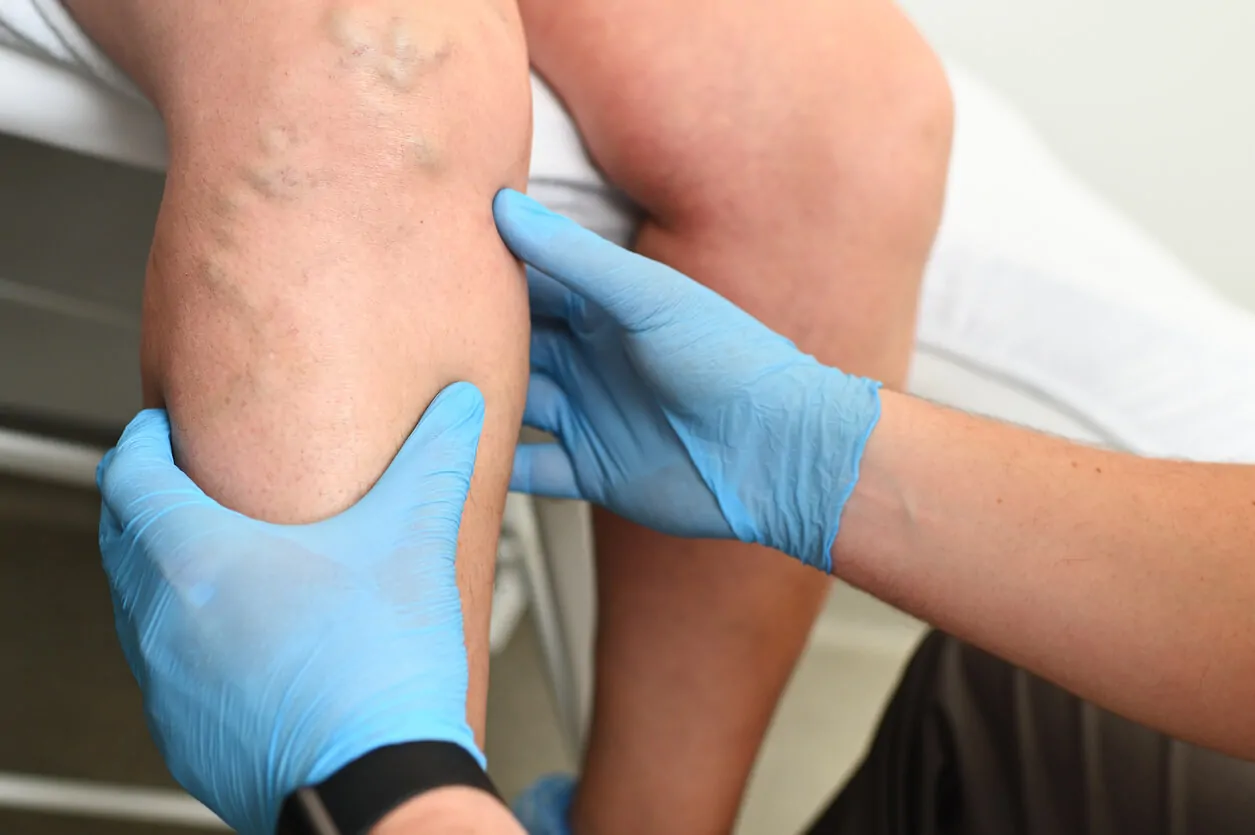Do You Need a Vein Doctor? Signs and Symptoms of Vein Disease

Are you experiencing discomfort, pain, or swelling in your legs? Have you noticed unsightly bulging veins on the surface of your skin? These may be signs and symptoms of vein disease, a common yet often overlooked condition that affects millions of people worldwide.
While it may not seem like a serious issue at first, untreated vein disease can lead to more concerning health complications such as blood clots and ulcers. If you’re experiencing any of these symptoms, it’s important to seek medical attention from a qualified vein doctor.
In this blog, we’ll discuss in detail the signs and symptoms of vein disease that should not be ignored, along with the importance of seeking proper treatment from a vein clinic for optimal venous health.
What Is Vein Disease?
Vein disease is a broad term used to describe conditions that affect the veins’ function, causing them to become damaged or diseased. When veins become damaged or weak, they can cause blood to pool in certain areas, leading to various health problems.
Signs and Symptoms of Vein Disease
There are a few ways your body might tell you that your veins aren’t working as they should. Let’s take a look at some common signs that indicate a vein disease:
Visible Veins
Spider Veins
These look like tiny, thin webs of red or blue lines just under your skin. They are usually harmless but can show that there might be problems with your veins.
Varicose Veins
These are bigger, swollen, and twisted veins that can be blue or dark purple. They often look like cords running just under your skin and can sometimes hurt.
Leg Pain and Swelling
Aching or Throbbing Legs
Experiencing pain or discomfort in your legs, especially after standing or sitting for long periods, could be a sign of vein disease. This pain is often described as aching or throbbing and can be relieved by elevating your legs.
Swelling
Your legs, ankles, or feet might puff up or swell, especially by the end of the day. This can happen because your veins are having trouble moving blood back up to your heart.
Skin Changes
Color Changes
The skin around your ankles and calves might change color, turning reddish-brown. This happens because blood isn’t flowing well, and that changes the color of your skin.
Itchy Skin
Your skin might feel really itchy like you want to scratch it all the time. Sometimes, you could even get a rash.
Sores
In serious cases, you might get sores or ulcers on your skin, especially around your ankles. These are like open wounds that take a long time to heal.
Cramps and Restlessness
Cramps
You might get muscle cramps, which are really painful tight spots in your muscles. These often happen at night and can wake you up.
Restless Legs
Some people feel a strong need to move their legs, especially when they are trying to sleep. This can make it really hard to fall asleep or stay asleep.
Why You Shouldn’t Ignore Vein Disease
Ignoring vein disease can lead to more severe health issues. Untreated vein disease can cause ulcers, skin infections, and even blood clots.
Ulcers
Ulcers in the legs are sores that don’t heal naturally. They can be painful and are often a result of untreated vein disease.
Skin Infections
Poor blood circulation can make your skin more prone to infections. These can become serious if not treated promptly.
Blood Clots
In the worst cases, vein disease can lead to blood clots. These can be life-threatening if they travel to your lungs, causing a pulmonary embolism.
What to Expect During Your Visit to a Vein Clinic
Here is what you can expect when you visit a vein clinic:
Initial Consultation
During your first visit to a vein clinic, your vein doctor will perform a comprehensive examination of your medical history and symptoms. You should be ready to discuss various aspects of your lifestyle, such as your daily activities, diet, and exercise habits.
Additionally, providing information on any family history of vein disease is crucial, as it can help the vein doctor understand possible hereditary risks.
The doctor will also physically examine your veins, looking for visible signs of vein issues such as varicose veins or spider veins.
Diagnostic Tests
Following the initial consultation, the vein doctor may suggest undergoing diagnostic tests to assess the condition of your veins more accurately.
One common test is a Doppler ultrasound, which uses sound waves to create images of your blood flow and detect any abnormalities. This test is non-invasive and helps the vein doctor see the blood flow in real-time, identifying blockages or valve malfunctions.
Your vein doctor at the vein clinic may also recommend other tests to detect the abnormalities in your veins.
Treatment Options
After evaluating your symptoms and diagnostic test results, the vein doctor will recommend a tailored treatment plan. Treatment options vary based on the severity and type of vein condition. These may include compression stockings, lifestyle changes, sclerotherapy, and others.
The goal of the treatment plan is to alleviate symptoms, improve blood circulation, and prevent further complications.
Vein Clinic in Irvine, CA
If you’re experiencing symptoms such as leg pain, swelling, or visible vein changes, it’s essential to visit a vein clinic staffed with highly skilled vein doctors.
At Pedes Orange County, we specialize in diagnosing and treating vein disease to help you live a healthier, more comfortable life. Our expert team of vascular specialists is ready to provide personalized care for a comprehensive range of venous diseases including chronic venous insufficiency, varicose veins, spider veins, and others.
To learn more, schedule an appointment at our vein clinic by filling out our form or calling us at (949) 998-4568. We look forward to serving you!










